News
María Cano: "All chefs have been inspired by a woman in the family"
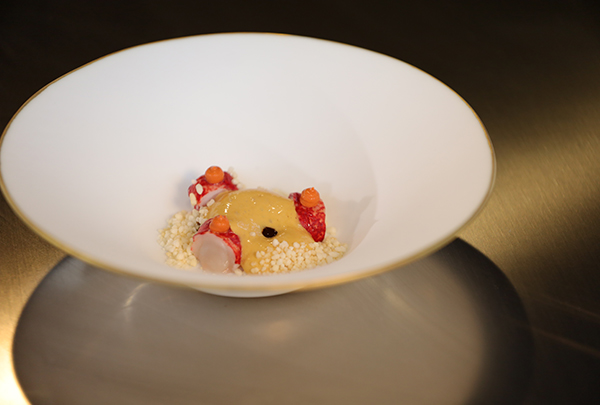
The FéminAs contingent arrives in the beautiful setting of the Nalón Valley, to kick off the second day of the congress at the Vicente Álvarez Cultural Centre in Sobrescobio with María Cano, sous-chef at Majorca's Michelin-starred restaurant Voro, flooding the mountains of Asturias with the purest essence of the Mediterranean in three lobster recipes.
María began her talk by thanking FéminAs for its promotion of women, so necessary for progress in a sector such as gastronomy. “I'm from a family of five women, and from a very early age my mother taught us values such as education and hard work, so necessary in all aspects of life to break through the glass ceilings preventing women from achieving the objectives they deserve”, she explained, adding that "in my case, it was my grandmother Kika who inspired me in the kitchen; while for Álvaro (Álvaro Salazar, the other 50% at Voro) it was his aunt Luisa, and I feel sure that, if we ask many of the leading chefs in this country, the careers of most of them were mapped out by women in their families".
Born in Córdoba, María learned the trade in Córdoba and Málaga, anbd worked at Choco* with Kisko García, before arriving in the kitchen at Argos (Pollensa, Majorca) to become chef Álvaro Salazar's right-hand woman, and it was there that they earned their first star. Since 2019 they have run Voro in Canyamel, a small town on the coast in northeast Majorca, and it has already notched up two Michelin stars and two Repsol "Sol" awards. Defined by them in concepts such as constancy, sacrifice and self-demand; eagerness, commitment and family; and also betterment, a professional attitude, team work and coherence, their fare is based on the flavours of the Mediterranean, achieving a perfect mix of the produce of the Balearic Islands and the Andalusian influence of both chefs.
Three original recipes inspired by the Balearic Islands with the influence of Andalusia
María brought two ultra-Mediterranean recipes to the heart of Asturias, "which contemplate the Balearic Islands, without forsaking our roots", according to her. The first was a vinaigrette sea food salad with Palo Cortado sherry, "coherent, with a great deal of personality", featuring "Panchuda" white prawns similar to shrimp, which have blue roe at this time of year; they were brined and positioned at the bottom of the plate alongside raw-worked cuttlefish, "concha fina" clams, steamed Menorca mussels, and a Bolinus brandaris mollusc. The concoction, featuring slivers of radish and cucumber in osmosis with their own juice, was doused with a vinaigrette infusion of blue fish, Jerez vinegar and Palo Cortado sherry with local herbs such as camomile and samphire. A spectacularly refreshing offer, "sweet in the sense of Andalusian dressings such as orange "remojón" or Málaga salad, which do so much to bring out the flavour of fish", said María.
The second recipe was a two-phase lobster process, one a finger-eating concept, and the other her peculiar interpretation of rice and lobster. For the first phase she used a thin potato cylinder fashioned from Sa Pobla sour potato strings with a mould, fried in olive oil afterwards. She filled it with a paste of the lobster's pincer meat, prepared with spring onion, garlic and green pepper. This was topped by a quail's egg with a touch of the blowtorch, to create an original, attractive snack.
Finally, María surprised congress-goers with "our interpretation of rice and lobster, such a traditional fun recipe just asking to be eaten", as she explained. She put three wedges of cooked lobster tail on the plate, with just a touch of heat, along with an emulsion fabricated from the dark green coral of the head, garlic and olive oil. She also produced a "bresa" from the sauté vegetables and saffron, a Hollandaise made with Majorca herbs such as wild oregano, sage and sea mayweed, "ideal to give it that fatty counterpoint of the Balearic alioli", adding a tasty demi-glace inside, distilled from the juice of the head. The recipe's singularity is rounded off by rice, in this case Sa Pobla "bombeta", cooked just right and then fried in virgin olive oil to give it the perfect crunchy texture.


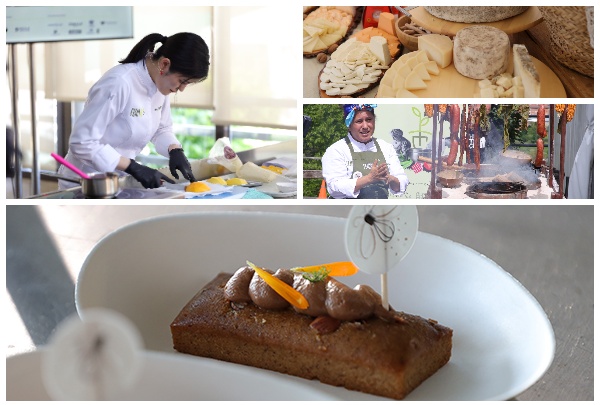
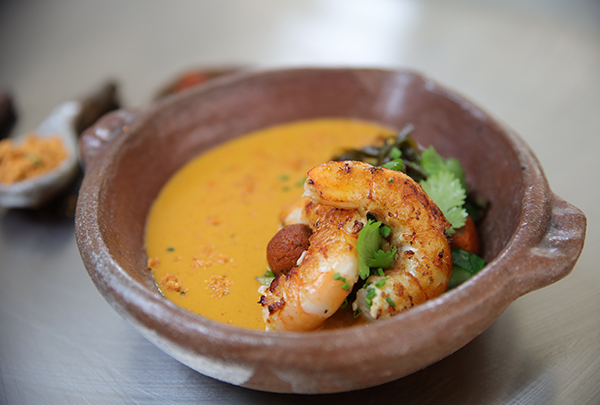
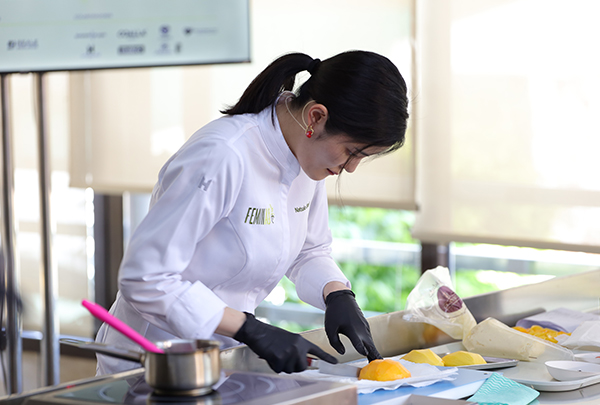
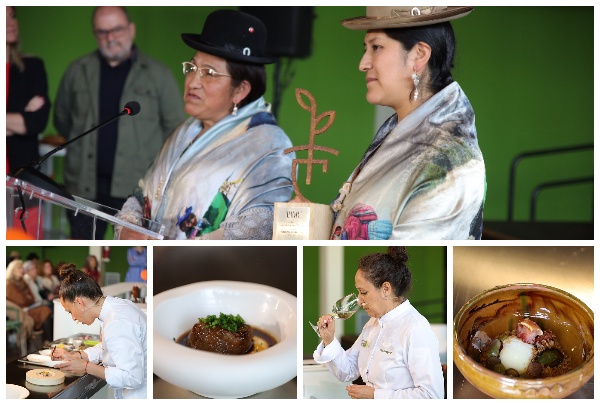
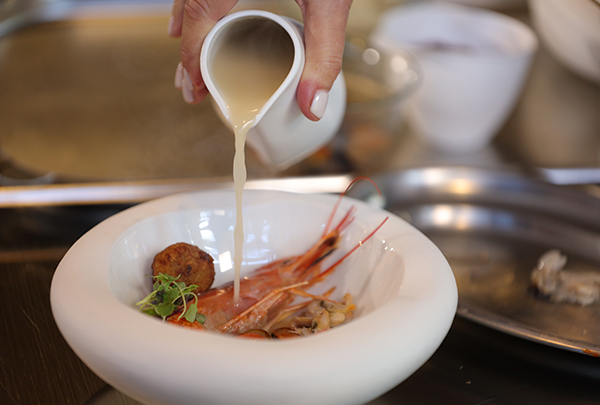
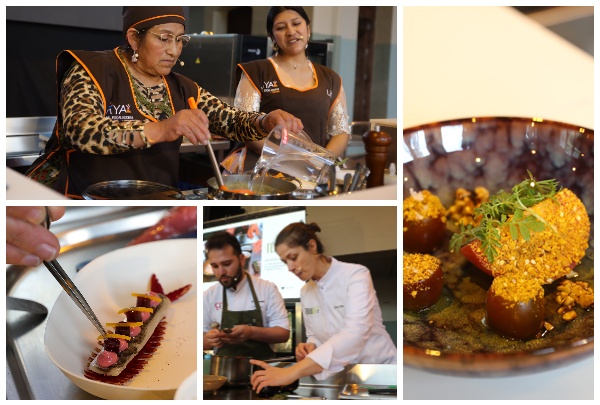
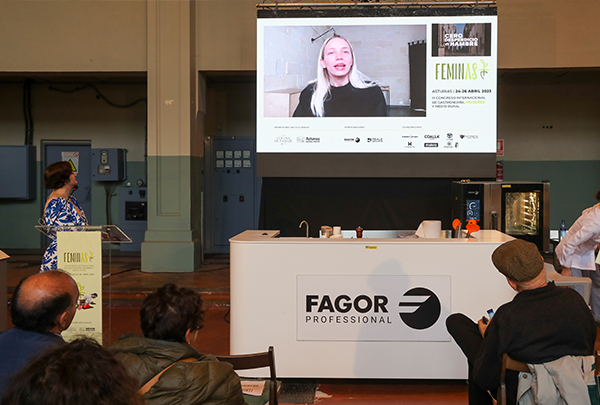
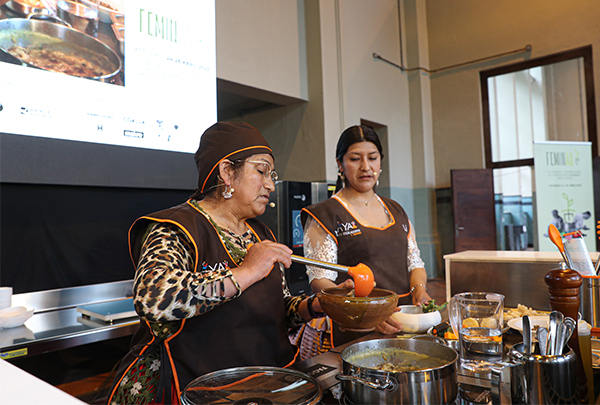
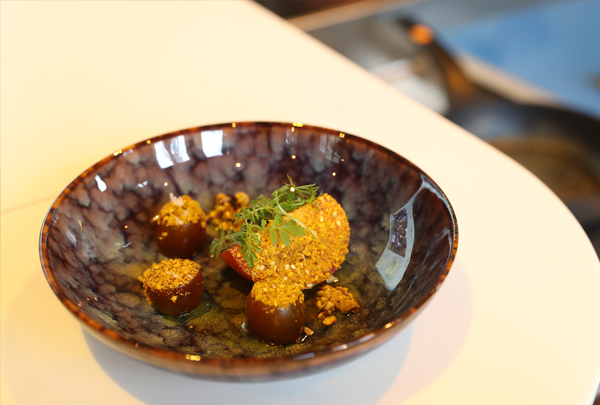
.jpg)










